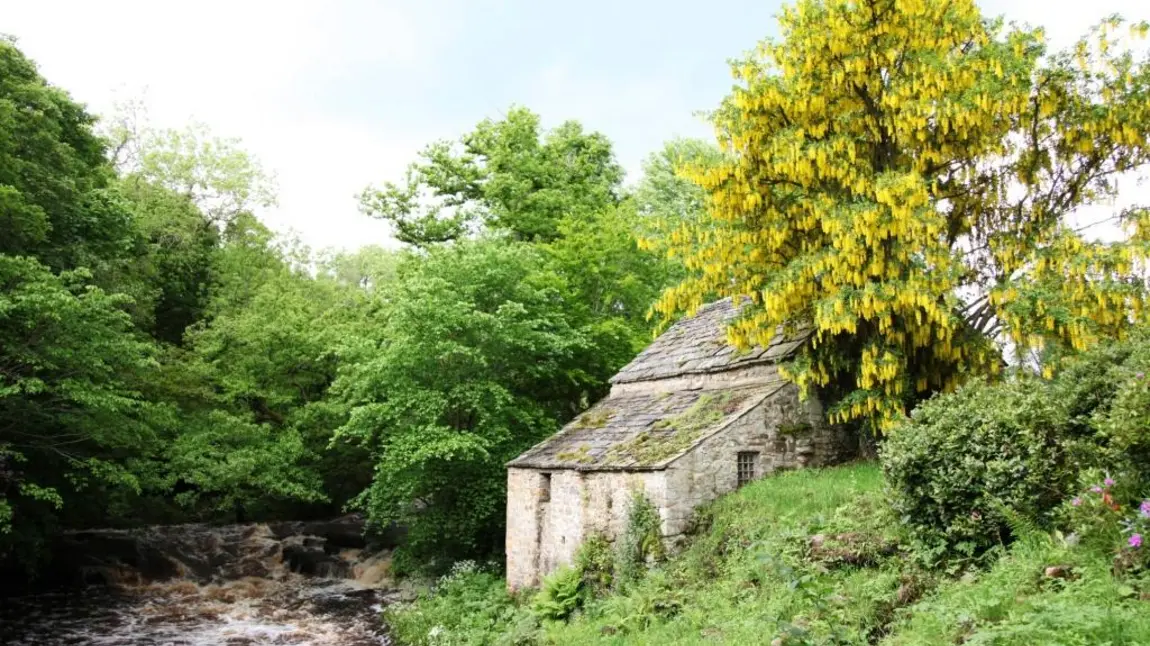Funding flow secures future of seventeenth-century Linnels Mill

Set into the banks of Devils Water in Northumberland, Linnels Mill has been a feature of the picturesque landscape since the 17th century. An oat and barley mill until 1890, the building was converted to produce electricity for the nearby Victorian house – one of the first to be electrically lit.
Since then Linnels Mill has been left remarkably undisturbed.
Time has taken its toll however and the Grade II* listed building is on English Heritage’s Heritage at Risk Register. As a result, Ashley and Gill Winter from the GR Winter Discretionary Trust and the occupiers of the adjacent house The Linnels, are launching a nine-month scheme of restoration work to secure the future of the historic building, which houses a full set of mill machinery including a rare example of an in situ oat roasting kiln.
Works will include replacing the windows, repairs to the roof and chimney stack, internal masonry and stonework and cleaning of the mill machinery. A key element of the project will see the headrace from the Devils Water reinstated, meaning water will once again flow to the nearby ponds and water features.
Working with the North East Mills Group and its volunteers, the project will also give the public access to the mill’s significant historical and technological heritage for the very first time. As well as the rare examples of mill machinery, Linnels contains a turbine and dynamo – offering a unique insight into how electricity was produced for one of the first electrically lit homes.
Interested members of the public can take part in hands-on workshops, develop skills in traditional building conservation and watch heritage professionals and craftsmen in action as they carry out the vital work.
Ivor Crowther, Head of Heritage Lottery Fund North East, said: “Linnels Mill is an excellent example of a heritage treasure in private ownership and we’re delighted to play a part in securing its place on the landscape for years to come. While many have admired it from outside, this is the first opportunity for people to access the mill’s centuries old legacy and gain a real working knowledge of their local industrial and technological heritage.”
Ashley Winter OBE from the GR Winter Discretionary Trust, said: “We are delighted that the Heritage Lottery Fund have agreed to support the conservation of Linnels Mill and the surrounding landscaping and water features. English Heritage supported us through the planning and surveys to the point of tendering for the works and recommended the Heritage Lottery Fund Our Heritage programme to us.”
About Linnels Mill
Linnels Mill is one of the best preserved traditional mills in the North of England. It developed through a series of stages and was complete in its present form by the mid 19th century. It is remarkable as since closure, apart from the introduction of a turbine and dynamo - themselves now of considerable technological interest, the whole building has been left undisturbed, complete with all machinery, throughout the 20th century. It also contains a complete example of an oat roasting kiln. The building stands in a remarkably picturesque location, in close association with a bridge of historical importance (1581) and an attractive late Victorian house, the landscaped garden of which incorporated the headrace of the mill as a water feature.
Further information
Heritage Lottery Fund press office: Rebecca Lamm on 020 7591 6245 or email: Rebecca.Lamm@hlf.org.uk.